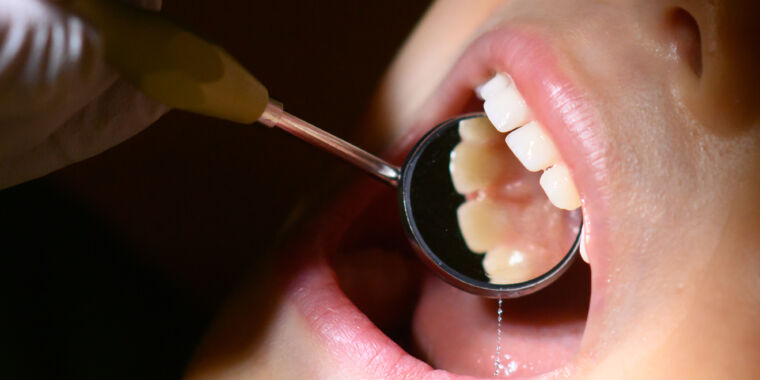Reforming Dentistry: A Call for Evidence-Based Care
The realm of dentistry has been slow in embracing evidence-based practices, leading to a prevalence of unnecessary diagnoses and treatments that are often more influenced by the economic demands of sustaining a dental practice rather than the actual needs of patients. This issue has been highlighted by a group of health and dental researchers from Brazil and the United Kingdom, spearheaded by epidemiologist and dentist Paulo Nadanovsky of the University of the State of Rio de Janeiro.
Questionable Dental Practices
In a recent viewpoint article published in JAMA Internal Medicine, the researchers shed light on the lack of solid evidence supporting many common practices in dentistry. For instance, the widespread recommendation of bi-annual dental check-ups for everyone has been called into question. Large clinical trials failed to demonstrate any significant benefit of 6-month check-ups compared to longer intervals of up to 2 years.
A 2020 Cochrane review highlighted that there is no difference in tooth decay, gum disease, or quality of life between adults who have 6-month check-ups and those who have personalized intervals based on their risk of dental disease. The same review suggested that longer intervals of up to 24 months between check-ups may not have a negative impact on these outcomes.
Nadanovsky and his team also pointed out the lack of evidence supporting common scaling and polishing treatments for adults without periodontitis. In the case of children, filling cavities in baby teeth is a routine practice despite evidence from a randomized controlled trial demonstrating similar rates of pain and infections whether the cavities are filled or not.
Root of the Issue
The disconnect between prevalent dental practices and scientific evidence is attributed by the researchers to economic motivations, professional training, patient expectations, and historical factors. The rise of fluoridated toothpastes in the 1970s and 1980s led to a drastic decline in cavity rates, prompting dentists to seek alternative ways to maintain their practices—sometimes at the expense of unnecessary treatments.
The prevailing dental economic model based on fee-for-service creates an environment of dental overdiagnosis and overtreatment. At the same time, many persons who do not have dental insurance cannot afford to pay out of pocket for dental care, creating a situation where people with low income or who are part of a racial and ethnic minority group are often underdiagnosed and undertreated.
Towards Evidence-Based Care
The researchers advocate for more clinical trials to evaluate the effectiveness and benefits of dental treatments, urging for updated guidelines that align with the latest evidence. By prioritizing patients in need, resources can be allocated more efficiently. The ultimate goal is to minimize overdiagnosis and overtreatment while enhancing necessary interventions.
In response to this viewpoint, the American Dental Association emphasized its commitment to evidence-based dentistry, which integrates clinical expertise, patient preferences, and up-to-date data in decision-making. While not directly addressing the lack of evidence behind certain practices, such as 6-month check-ups, the ADA stressed the significance of dentist-patient relationships and patient involvement in treatment decisions.
Patients are encouraged by the ADA to be proactive in selecting a dentist, requesting cost estimates upfront, and engaging in discussions about treatment options. The ADA’s statement on dental patient rights and responsibilities emphasizes the importance of patient autonomy and the freedom to seek alternative opinions or treatment plans.
The dental community, represented by the ADA, aims to address untreated oral diseases and encourages regular dental visits tailored to individual needs and supported by the latest scientific evidence available.
Image/Photo credit: source url




